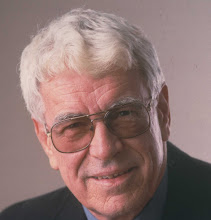“I'm glad I have a property in Canada,” said my American neighbour, “because I know I have a place to go when the brown hits the blades in the States.”
Wait a minute. This is not some pinko dope-smokin' hipoid radical kid. This is a prosperous middle-aged businessman, an armed forces veteran, whose general political orientation is probably Republican.
And yes, I heard such talk 40 years ago, when the US was in flames: inner cities burning, campus riots, an endless slaughter in Vietnam. Today, with a dishonorable war slowly being lost in Iraq and a lunatic presidency spoiling to start another one in Iran, you might expect the same symptoms. But they aren't there.
True, many patriotic Americans are deeply sad and angry. Read the passionate anti-war speech by Salt Lake City Mayor Rocky Anderson, for example, at http://www.slcgov.com/mayor/. But the Democrats are both complicit and cowardly, and the streets and campuses are not ripping out the country's entrails as they once did. So what is my friend worried about? What does he mean?
“I'm not sure what I mean,” he replies. “But the United States has not discharged its responsibilities well either domestically or internationally, and my intuition tells me that we'll be called to account for that. I don't know whether it will be a lot more al-Quaeda attacks or what it may be. But I'm glad to have a place to go with my family.”
Well.
Soon after that, I read John Risley's investment advice in Atlantic Business. Risley, you'll recall, started out selling lobsters from the back of an old pickup truck. His Clearwater Fine Foods group is now the dominant player in what's left of the Atlantic Canadian fishery. Risley is a very wealthy investor.
Risley's first investment preference is Canada, with its natural resources, strong dollar, robust economy and orderly markets. But one should also diversify into foreign investments. He suggests looking first at London, which is “in the process of replacing New York as the world's financial capital. Why is that? Because the global financial powerhouses can move talent from around the world to their London offices. The paranoia resident within the US immigration policy prevents that from happening in New York.”
Richard Florida makes the same point on a broader scale. In The Rise of the Creative Class, Florida argues that the driving force in today's knowledge economy is human creativity, which flourishes in places that are tolerant, diverse, culturally and intellectually rich, hospitable to innovation.
Thus the US economy has been propelled by its ability to “energize and attract the best and the brightest, not just from our country but also from around the world.” Almost a third of the new businesses in Silicon Valley during the 1990s were created by immigrants from China or India. Enterprises founded by immigrants include Intel, Sun Microsystems and Google.
But, says Florida, Bush's Washington “has stunned scientists across the world with its disregard for consensus scientific views.” Think about stem cells and global warming. Washington has also “inspired the fury of the world, especially of its educated classes, with its my-way-or-the-highway foreign policy. In effect, for the first time in our history, we're saying to highly mobile and very finicky global talent, 'You don't belong here.'”
So the brilliant young immigrants who once competed for entry to Harvard and Berkeley are applying to Cambridge and Copenhagen – and Toronto. Foreign students in the US “complain of being hounded by the immigration agencies as potential threats to security.” Scientists report that they can't hold international conferences in the US because foreign scientists can't get visas. Even distinguished American scholars are emigrating.
These huge trends reflect millions upon millions of individual choices. A Cape Breton couple decides to fly to Nassau via Toronto rather than New York in order to take some food to their hosts and avoid the hassles and delays at the US border. A Brazilian family chooses not to vacation near the Grand Canyon. An small Italian company expands in Germany, not the US.
So there's less demand for the US dollar, and it falls. Did the Canadian dollar strengthen? Yes, slightly – but this year the U.S. dollar has declined against 15 of the 16 most-actively traded currencies.
When George W. Bush took office, his neo-conservative buddies were touting a “New American Century” of world domination. American power seemed limitless. That was an illusion, of course, as unlimited power always is. But Bush behaved as though it were a reality. On his watch, the US has lost much of its power, economic, political, military and intellectual, along with its global good-will.
An increasingly-hostile world is learning to get along without the United States. The “New American Century” is ending. It didn't even last ten years.
-- 30 --
Subscribe to:
Post Comments (Atom)

No comments:
Post a Comment